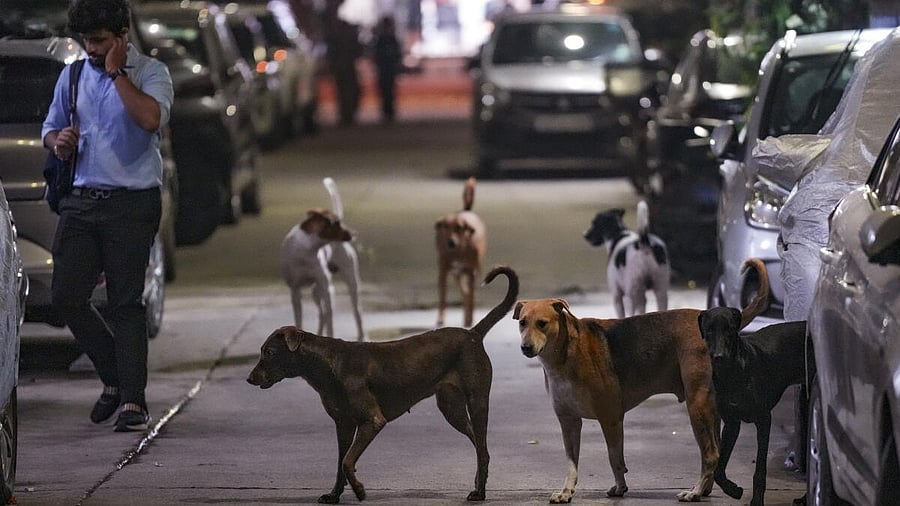
Stray dogs at a street at Shalimar Bagh area, in New Delhi
Credit: PTI Photo
New Delhi: Animal activists on Monday said the Supreme Court decision on large-scale shifting of stray dogs to government and municipal shelters will not solve the problem as it would not be feasible to create so many shelters to house over 10 lakh canines in Delhi National Capital Region and forceful removal of community dogs are against global best practices.
They also noted that stray dogs became a menace in the first place due to the government’s inability to effectively implement the sterlisation programme, mandated 25 years ago.
“As per a 2022-23 survey Delhi has around 10 lakh community dogs, with less than half sterilised. Had the Delhi government implemented an effective dog sterilisation programme, there would hardly be any dogs on the road today,” Mini Aravindan, senior director of veterinary affairs at People for the Ethical Treatment of Animals said in a statement.
The World Health Organization and the World Organisation for Animal Health have long cautioned against mass removal of community dogs.
Relocation disrupted the existing vaccination coverage, broke up stable, disease-protected dog populations, and triggered the “vacuum effect” — where new, unvaccinated dogs quickly moved in, the activists pointed out.
“India’s Animal Birth Control (ABC) Rules, 2023 — fully aligned with WHO recommendations — require that sterilised and vaccinated community dogs be returned to their original territories after treatment,” said Bharati Ramachandran, chief executive officers at Federation of Indian Animal Protection Organisations.
“These rules are designed to ensure stable, protected populations and long-term rabies reduction. Forced removal directly contravenes these provisions.”
More than two decades ago, the Union government enacted the Animal Birth Control (Dogs) Rules 2001 to mandate sterilisation and vaccination of stray dogs to control their population and prevent rabies. This was superseded by the Animal Birth Control Rules 2023 that revised the birth control module for street dog population.
The Union government last month informed the Parliament that there were more than 37 lakh dog bite cases and 54 suspected rabies deaths in 2024.
Animal welfare activists say mass sheltering of healthy, vaccinated dogs is impractical and overcrowded facilities can cause extreme stress, injury, disease outbreaks, and suffering.
“Communities think of neighbourhood dogs as family. Forced removal of community dogs from Delhi’s streets will cause uproar in communities that care deeply for them,” Aravindan said.
“The solution lies in scaling up Delhi’s sterilisation and vaccination programmes, implementing robust waste management to reduce conflict, and running public awareness campaigns on co-existence,” added Ramachandran.
